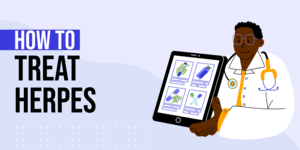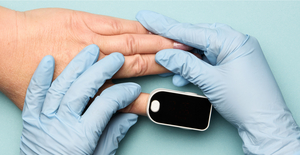Key points
- Shellfish allergies are adverse immune reactions to proteins found in shellfish, including crustaceans and mollusks.
- Symptoms of shellfish allergy can range from mild itching to severe, life-threatening anaphylaxis.
- The primary treatment for shellfish allergy is strict avoidance of shellfish, with antihistamines and epinephrine used for accidental ingestion.
- Individuals with shellfish allergies should seek medical attention for diagnosis, management plan, and emergency medication prescription.
- Individuals with shellfish allergies should work with healthcare professionals to manage their allergy and should seek immediate medical attention if they suspect a reaction.

Shellfish allergies can cause a range of uncomfortable symptoms, from mild hives and itching to more severe and life-threatening reactions, according to the Cleveland Clinic. In this article, we will explore the symptoms, causes, and treatment options for shellfish allergies, providing valuable information for those who may be affected by this common food allergy.
What Is a Shellfish Allergy?
A shellfish allergy is an adverse immune reaction to proteins found in shellfish, such as crustaceans and mollusks, according to the Cleveland Clinic. They note that when someone with a shellfish allergy consumes these types of seafood, their immune system mistakenly identifies certain proteins as harmful, triggering a range of symptoms.
The Mayo Clinic explains that there are two main categories of shellfish: crustaceans and mollusks. Crustaceans include shellfish such as shrimp, crab, and lobster, while mollusks encompass varieties like clams, mussels, oysters, and scallops. It's important to note that individuals with a shellfish allergy may be allergic to one or both of these categories, so it's crucial to be aware of all types of shellfish when managing this allergy.
Understanding the different types of shellfish and the potential allergens they contain can help individuals with shellfish allergies make informed decisions about their diet and avoid triggering allergic reactions.
What Are the Symptoms of a Shellfish Allergy?
Recognizing the symptoms of a seafood allergy is crucial for prompt and effective management of this condition, according to the Cleveland Clinic. They note that the body's response to allergens found in shellfish can range from mild to severe and can affect various parts of the body. So it’s essential for individuals with a shellfish allergy, as well as their friends and family, to be familiar with the signs and symptoms to ensure immediate action can be taken if an allergic reaction occurs.
Below is a list of common symptoms that may arise after consuming shellfish or coming into contact with shellfish proteins, according to the Cleveland Clinic:
-
Itching
-
Hives or urticaria (raised, often itchy, red welts on the surface of the skin)
-
Worsening of pre-existing eczema
-
Tingling or swelling of the lips, tongue, or throat
-
Chest tightness, wheezing, coughing, shortness of breath, and difficulty breathing
-
Stomach issues, including pain, nausea, indigestion, vomiting, or diarrhea
-
Dizziness or lightheadedness
-
A weak pulse or fainting
-
Pale or blue coloring of the skin
-
Anaphylaxis, a severe, life-threatening allergic reaction that can involve multiple systems in the body, such as the respiratory system, gastrointestinal tract, skin, and cardiovascular system. Anaphylaxis requires immediate medical attention.
What Causes a Shellfish Allergy?
The exact cause of a shellfish allergy is not fully understood, but it is believed to be related to an abnormal immune response to specific proteins found in shellfish, according to the Mayo Clinic. They explain that these proteins can trigger the body's immune system to produce antibodies, leading to the release of histamine and other chemicals that cause allergic symptoms.
The Mayo Clinic also notes that individuals can develop a shellfish allergy at any age, even if they have previously consumed shellfish without any adverse reactions. Additionally, a family history of allergies, particularly to shellfish, may increase the likelihood of developing a shellfish allergy. Further research is needed to fully understand the underlying mechanisms of shellfish allergies and identify potential risk factors, according to the Mayo Clinic.
Treatment for Shellfish and Fish Allergies
The primary treatment for a shellfish and seafood allergy involves strict avoidance of these allergens to prevent allergic reactions, according to the Cleveland Clinic. They explain that individuals diagnosed with a shellfish or fish allergy should carefully read food labels, inquire about ingredients when dining out, and be aware of potential cross-contamination in food preparation.
In case of accidental ingestion, over-the-counter antihistamines can help alleviate mild allergic symptoms such as itching or hives, according to the Cleveland Clinic. However, for severe allergic reactions, including anaphylaxis, prompt administration of epinephrine (adrenaline) via an auto-injector is essential, followed by seeking emergency medical care, according to the Cleveland Clinic. They note that individuals with shellfish and fish allergies must work closely with healthcare professionals to develop a comprehensive management plan and receive education on recognizing and responding to allergic reactions.
When Should You Visit a Doctor?
You should seek medical attention if you suspect that you or someone else is experiencing a shellfish allergy, according to the Cleveland Clinic. They note that prompt medical care is particularly important if the symptoms are severe or if there are signs of anaphylaxis, such as difficulty breathing, swelling of the throat, or a drop in blood pressure. Additionally, if you have experienced a severe allergic reaction to shellfish in the past, it is crucial to consult a doctor for further evaluation and to receive guidance on managing and preventing future allergic reactions, according to the Cleveland Clinic. A healthcare professional can provide an accurate diagnosis, offer personalized advice on allergen avoidance, and prescribe emergency medications, such as epinephrine auto-injectors, if necessary.
How Can I Avoid an Allergic Reaction to Shellfish?
Avoiding an allergic reaction to shellfish involves being proactive and vigilant in various situations to minimize the risk of exposure to shellfish proteins, according to the Mayo Clinic. They note that whether dining out or preparing meals at home, taking certain precautions can significantly reduce the likelihood of an allergic reaction. Here are some key strategies to prevent shellfish allergy reactions, according to the Mayo Clinic:
-
Be cautious when dining out: When eating at restaurants, inform the staff about your shellfish allergy, ask detailed questions about menu items, and inquire about potential cross-contamination in the kitchen.
-
Read labels: Carefully read food labels to identify any shellfish-derived ingredients, and be mindful of advisory labels indicating the presence of shellfish or potential cross-contact with shellfish during manufacturing.
-
Keep your distance: Avoid handling or consuming shellfish, and be cautious when near shellfish preparation or cooking areas to minimize the risk of inhaling allergenic particles.
Urgent care near me
If you or someone you know is experiencing a shellfish allergy, getting prompt treatment is important. Find and save your place in line at an urgent care near you using Solv.
FAQs
What is a shellfish allergy?
A shellfish allergy is an immune system response to proteins found in shellfish, causing various symptoms upon consumption.
What are the symptoms of a shellfish allergy?
Symptoms can range from mild, such as itching and hives, to severe, like difficulty breathing and anaphylaxis, a life-threatening allergic reaction.
What triggers a shellfish allergy?
The immune system mistakenly identifies certain proteins in shellfish as harmful, triggering allergic symptoms. The exact cause is not fully understood.
How is a shellfish allergy treated?
The primary treatment is avoidance of shellfish. Antihistamines can alleviate mild symptoms, while severe reactions require epinephrine and emergency medical care.
How can I prevent an allergic reaction to shellfish?
Preventive measures include informing restaurant staff about your allergy, reading food labels carefully, and avoiding areas where shellfish is being prepared.









